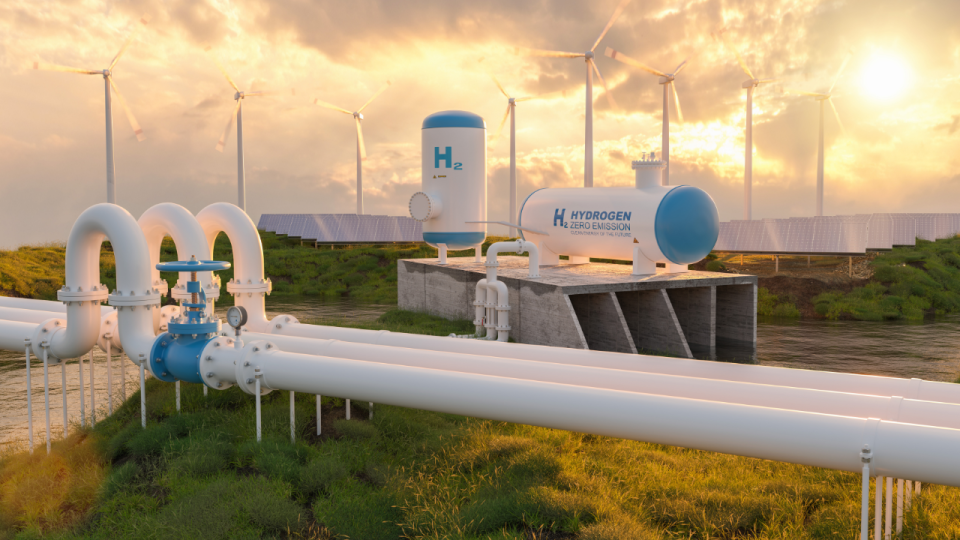March 2, 2023, Washington, DC – Today, Senators Chris Coons (D-DE) and John Cornyn (R-TX) reintroduced a package of four bills to support the adoption of hydrogen technologies in key end-use sectors, providing important demand-side support as the United States builds and scales its hydrogen economy.
Read a summary of this package here.
“Clean hydrogen is a critical solution for addressing the high-temperature heat needs of the industrial sector and replacing carbon-intensive feedstocks and fuels throughout the economy,” said Gabrielle Habeeb, Project Manager of the Industrial Innovation Initiative.
The Industrial Innovation Initiative supports the introduction of this legislation, which would fund best-use applications in Maritime, Heavy Industry, and Heavy-Duty Trucks while supporting the infrastructure investments necessary to retrofit, transport, and store this versatile resource. Accelerating the demonstration and deployment of clean hydrogen will help build this nascent economy to the scale necessary to achieve United States emission reduction goals.
THE PACKAGE INCLUDES –
The Hydrogen for Industry Act: This bill would support demonstration and commercialization of industrial applications for hydrogen. Hydrogen is a promising decarbonization solution in difficult-to-abate industries, including steel, cement, glass, and chemical production.
Read The Hydrogen for Industry bill text here.
The Hydrogen for Ports Act: This bill would support the demonstration of maritime applications for hydrogen. The use of hydrogen- and ammonia-fueled equipment in shipping and multi-modal transportation are ideal early applications, making ports a centralized opportunity for shared infrastructure.
Read The Hydrogen for Ports bill text here.
The Hydrogen for Trucks Act: This bill would support the demonstration of heavy-duty fuel cell vehicles and hydrogen fueling stations, lowering the risk for fleet operators and incentivizing private investments.
Read The Hydrogen for Trucks bill text here.
The Hydrogen Infrastructure Finance and Innovation Act (HIFIA): This bill would create a pilot financing program, modeled after the TIFIA, WIFIA, and CIFIA programs, for retrofitted or new hydrogen transport infrastructure, storage projects, and refueling stations.
Read The Hydrogen Infrastructure Finance and Innovation Act bill text here.
###
The Industrial Innovation Initiative (I3) is an ambitious coalition that aims to drive emissions reductions through policy change, supporting quality jobs and investment in key US industrial sectors. I3 builds on years of stakeholder engagement and work with state officials in the Midcontinent region, as well as extensive work advancing decarbonization solutions important to the industrial sector.

